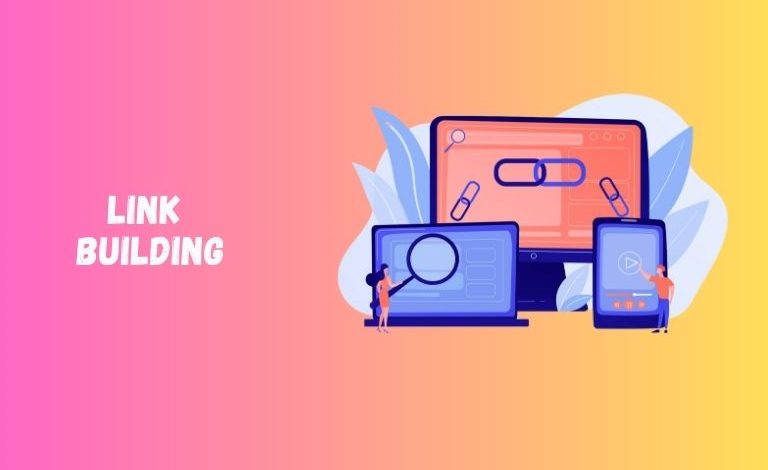Top Link Building Mistakes You Need to Stop Making Today

Link building is a vital component of any successful SEO strategy. Quality backlinks can significantly boost your website’s search engine ranking and drive organic traffic. However, when done incorrectly, link building can have the opposite effect. Many businesses fall into common link building traps that can damage their website’s reputation and ranking.
If you are struggling to see results from your link building efforts, it might be time to evaluate your strategy. Here are the top link building mistakes you need to stop making today.
- Focusing on Quantity Over Quality
One of the most prevalent mistakes is prioritizing the number of backlinks over their quality. Google values high-quality, relevant backlinks more than a large number of low-quality links. Links from spammy, irrelevant, or low-authority websites can harm your website’s credibility and SEO performance.
Solution:
- Focus on earning backlinks from authoritative websites in your niche.
- Build relationships with industry leaders and collaborate on content.
- Prioritize guest posts, partnerships, and content collaborations with trusted websites.
- Ignoring Relevance
Building backlinks from unrelated websites is another common blunder. Google evaluates the relevance of the linking domain to your website. If your website is about health and wellness, but your backlinks come from technology blogs, it can raise red flags.
Solution:
- Ensure your backlinks come from websites that are relevant to your industry or niche.
- Create content that naturally attracts links from sites with similar topics.
- Buying Links
Purchasing backlinks is a black-hat SEO tactic that violates Google’s guidelines. While it might offer short-term gains, it can lead to severe penalties, including losing your search engine ranking.
Solution:
- Invest in creating high-quality content that earns links organically.
- Focus on building relationships and providing value to attract natural backlinks.
- Using Exact Match Anchor Text Excessively
Anchor text is the clickable text in a hyperlink. Using exact match anchor text (e.g., “best digital marketing services”) too frequently can appear manipulative to search engines. Over-optimized anchor text can lead to algorithmic penalties.
Solution:
- Use a natural mix of anchor texts, including branded, generic, and partial match anchors.
- Ensure anchor text adds value to the user and flows naturally within the content.
- Neglecting Internal Linking
Many website owners focus solely on external backlinks and overlook internal linking. Internal links improve website navigation, help distribute page authority, and enhance user experience.
Solution:
- Strategically link to relevant pages within your website.
- Use descriptive anchor text for internal links to guide both users and search engines.
- Overlooking Link Diversity
Relying heavily on a single source for backlinks can make your link profile look unnatural. Search engines prefer a diverse range of backlinks from various sources.
Solution:
- Acquire links from different types of websites, such as blogs, news sites, directories, and forums.
- Engage in various link building techniques, including content marketing, outreach, and social media promotion.
- Ignoring Nofollow Links
Some marketers disregard nofollow links because they don’t directly pass link equity. However, nofollow links can still drive traffic, increase brand awareness, and contribute to a natural link profile.
Solution:
- Accept nofollow links as part of your overall strategy.
- Focus on building a natural mix of dofollow and nofollow links.
- Failing to Monitor Your Backlink Profile
Building backlinks is not a set-it-and-forget-it task. Toxic or spammy links can appear over time and damage your website’s ranking. Regularly auditing your backlink profile is essential to identify and disavow harmful links.
Solution:
- Use tools like Google Search Console, Ahrefs, or SEMrush to monitor your backlinks.
- Identify and disavow low-quality or toxic links to protect your website’s SEO health.
- Over-Reliance on Guest Posting
While guest posting is a legitimate link building technique, overusing it can lead to diminishing returns. Google can detect patterns of excessive guest posting for link acquisition and may penalize websites engaged in such practices.
Solution:
- Diversify your link building approach beyond guest posts.
- Focus on creating shareable content, building partnerships, and engaging in PR activities.
- Not Creating Link-Worthy Content
Without high-quality, valuable content, your link building efforts will fall flat. If your content is not engaging or informative, other websites are less likely to link to it.
Solution:
- Create original, well-researched content that addresses your audience’s needs.
- Develop infographics, case studies, and industry reports to attract links naturally.
- Using Outdated Link Building Techniques
SEO and link building strategies evolve constantly. Tactics like link exchanges, article directories, and automated link building are outdated and can harm your website.
Solution:
- Stay updated with the latest SEO and link building trends.
- Adapt your strategy to align with Google’s algorithm updates and best practices.
- Ignoring Local Link Building
Businesses targeting local customers often neglect local link building opportunities. Local links can improve your local search visibility and drive more relevant traffic.
Solution:
- Build relationships with local businesses, blogs, and media.
- Get listed in local directories and engage with community events to earn local backlinks.
Final Thoughts
Effective link building requires a strategic approach, patience, and a commitment to quality. Avoiding these common mistakes can help you build a strong, natural backlink profile that boosts your website’s ranking and drives sustainable organic traffic. By focusing on quality, relevance, and diversity, you can create a link building strategy that delivers long-term success.
Take the time to audit your current link building efforts and make the necessary adjustments. Your website’s SEO performance will thank you for it!




